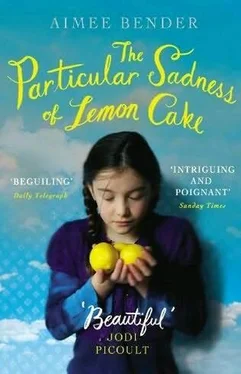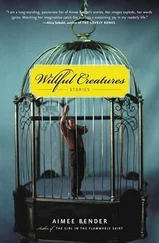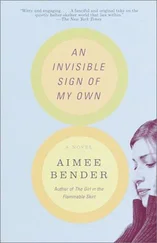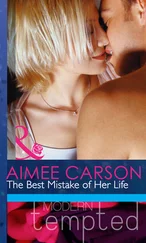I sat quietly, watching out the moth-encrusted window, tracking the Jupiter dot as we drove south. Little cars below us, zipping past on Fairfax. At a red light, I gave a nod to an older woman driving in curlers. Waved at a guy in motorcycle gear who did rocker hands back. I glanced at the back of Joseph’s head, wanting to show him. He read his textbook. In my mind, I told him. He laughed, and looked.
We arrived without incident, I achieved four waves, and Joseph got off and turned down the alleyway that led to the junior high. I walked across the blacktop playground into third grade.
Math problems, reading, carpet time, oil-pastel sky drawing art project. Recess. Four square. Two points. Milk carton. History, spelling. Lunch bell.
I spent lunchtime at the porcelain base of the drinking fountain, which was half stopped up with pink gum, taking sip after sip of the warm metallic water that pushed through old pipes from plumbing built in the twenties, pouring rust and fluoride into my mouth, trying to erase my peanut-butter sandwich.
My mother slept in because she did not sleep well. Since she was a child, she told me once, when I brought in her morning glass of water. I would wait to feel myself fall asleep, she told me as I perched on the edge of her bed; and I would wait and wait, she said, wanting to catch it happening, like the tooth fairy. You can’t catch sleep, I said, turning the glass on its cork coaster. She smiled at me, through half-lidded eyes. Smart girl, she said.
I would hear her, sometimes, as I was resettling myself in the middle of the night; at 2 a.m. it was not unusual to hear the flip of the kitchen light switch and the hum of the teakettle warming. A hint of light down the corridor casting a faint glow on my bedroom wall. The sounds were comforting-a reminder of my mother’s presence, a feeling of activity and function, even though I knew come morning it would mean a tired-looking mother, her eyes unfocused, searching for rest.
Every now and then, I would crawl out of bed in the middle of the night to find her in the big armchair with the striped orange pattern, a shawl-blanket draped over her knees. I, at five, or six, would crawl into her lap, like a cat. She would pet my hair, like I was a cat. She would pet, and sip. We never spoke, and I fell asleep quickly in her arms, in the hopes that my weight, my sleepiness, would somehow seep into her. I always woke up in my own bed, so I never knew if she went back to her room or if she stayed there all night, staring at the folds of the curtains over the window.
We’d lived in this house all my life. My parents had met in Berkeley as college students, but they got married right after graduation, moved to L.A. for Dad’s law school, and my mother gave birth to Joseph shortly after they’d bought and settled into the place on Willoughby. She’d had trouble picking a major in college, unsure what she liked, but she chose the house right away because it was boxy and friendly, with red roof tiles and a mass of bougainvillea pouring over the door awning, and the diagonal diamond-shaped window patterns in the front looked like they could only frame a family that was happy.
Dad studied hard, did well on his tests, shook hands with his teachers. He made sheets of checklists on pads of yellow legal paper, lists reminding him to Talk to the Librarian, Give Green Sweater to Homeless Guy on Jefferson, Buy Apples. Find a Wife hadn’t been on any visible list, but he’d proposed earlier than most of his peers and something did seem to get checked off inside him once they were married. He bought gifts in line with the anniversary materials and framed their best wedding photograph for the hallway, and even though Have a Son and Have a Daughter looked better on paper than in the crying and diapering day after day, my father was pleased by the elder son/younger daughter arrangement. The world had matched what he’d dreamed up, and he settled himself inside what they’d made. He was cheerful enough when he came home from work but he didn’t really know what to do with little kids so he never taught us how to ride a bike, or wear a mitt, and our changes in height remained unmarked on the door frames, so we grew tall on our own without proof. He left at the same time each morning and came home at the same time each evening, and my earliest memories of my mother were of her waiting at the door as soon as it was anywhere near time, me on her hip, Joseph at her hand, watching car after car drive by. He was never late, but she watched early anyway. During the afternoons, when she was tired of kid activities, she would sometimes roll around a white plastic Wiffle Ball and tell us stories of our first few years. In particular, she told the stories of our births. For some reason, Dad refused to go into hospitals, so Mom had given birth to each of us by herself while Dad waited outside on the sidewalk, sitting on a crate, half reading a detective story.
Lucky me, she said, as she pushed the plastic wobbly ball over. I got to meet you both first.
When Dad got home, he’d bound up the walk and throw open the door, kissing her, kissing us, lining up his shoes, sifting through the mail. If anyone had been crying for any reason, he’d pull out a tissue and pat down our cheeks and say salt was for meat, not faces. Then he’d run out of greetings and glance around at the walls until he headed off to their room to change. What my father did most comfortably and best was log those long hours while my mother bathed and fed and clothed and burped, viewing the world at large as the vastest of colleges, a repeat of the trouble she’d had earlier deciding on a major. Possibilities seemed to close in on her. I love everything, she told me when I was still little enough to sit high on her hip. I don’t know what I like! she said brightly, kissing me on the nose. You’re so cute! she said. So cute! You! You!
I hardly knew any of my other relatives. Either they lived far away or they were dead. Three of my four grandparents had passed on to other unknowns by the time I was four, but my mother’s mother was apparently as healthy as an Olympian even though she’d never exercised a day in her life. She lived north, in Washington State.
She hated travel, so she didn’t visit, but one Saturday afternoon during my eighth year, a big brown box package arrived at our doorstep with GRANDMA in capital letters as the return address. A package! I said, dragging my parents to the door. Is it somebody’s birthday? No, Mom said stiffly, pushing it inside with her foot.
Inside, beneath layers of foam, I found a dish towel with my name on it. For Rose, she had written, in spidery handwriting on a scrap of paper taped to the towel itself. It was frayed, the pattern faded. I grabbed it out of the box and held it to my cheek. What is this? Dad asked, pushing foam strips onto the floor and lifting out a chipped daisy-patterned teacup with his paper taped to it: To Paul. Her broken teacup? he said. Joseph’s gift was a series of clean blue pillowcases, and my mother’s name was attached to a plastic bag full of cracked tins of rouge. She’s old now, Mom had said, circling a bit of rouge onto the back of her hand. Grandma lived alone, and probably at that point had lost part of her mind, but no one dared move her. She can still get to the post office, right? said Mom, shuttling the bag of rouges to the back of a kitchen drawer. Dad pulled handfuls of coins from his pockets. Whew! he said. Not a lot of love lost between you two! He dumped all his change into the teacup so that no one would ever drink out of it.
I loved my dish towel. This one was two-toned, and had, on one side, stitchings of fat purple roses on a lavender background, and on the other side, fat lavender roses on a purple background. Which side to use? An optical-illusion namesake with which I could dry our dishes. It was soft and worn and smelled like no-nonsense laundry detergent.
Читать дальше












